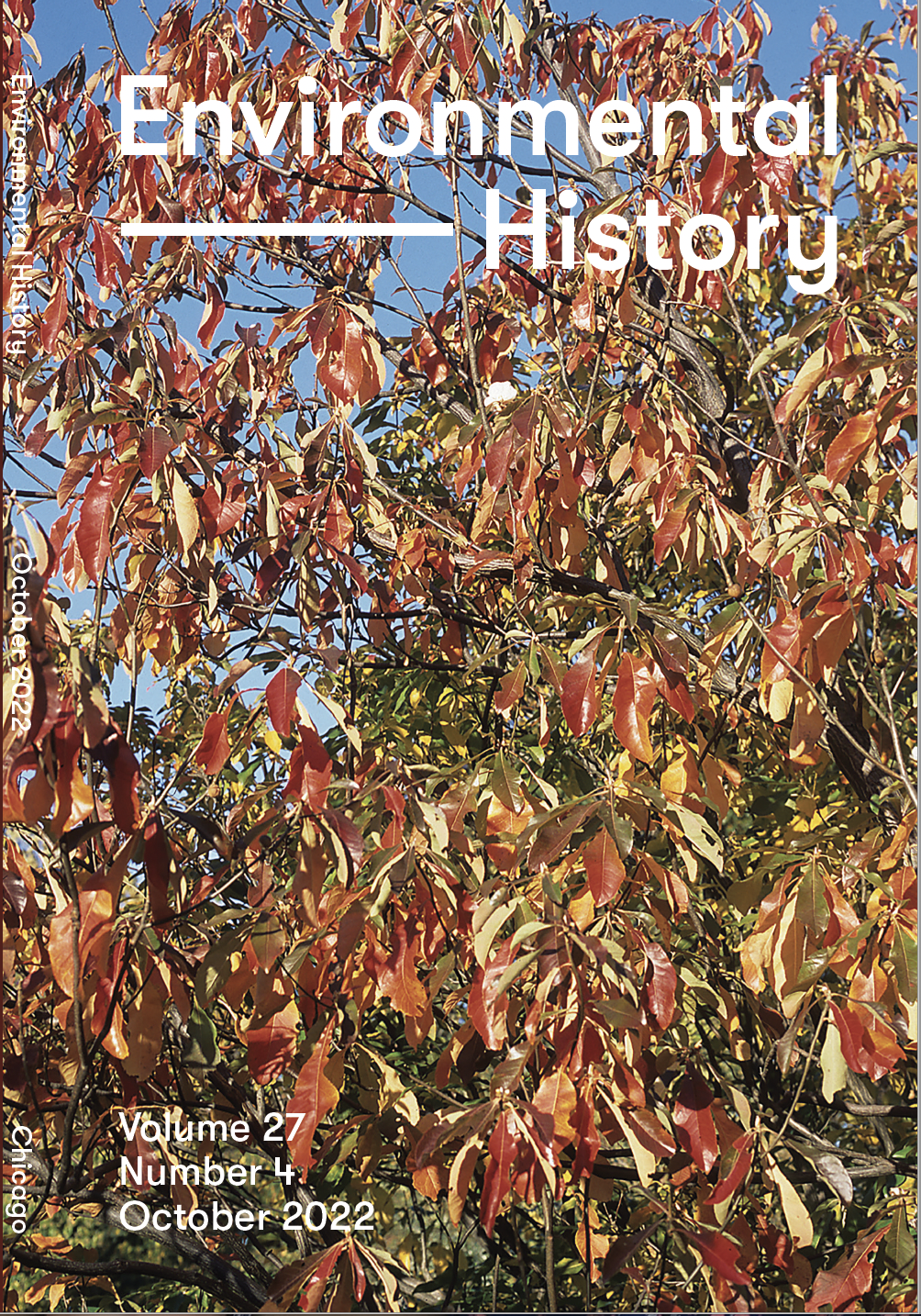
Article Alert: Illiberal Environmentalism? The Case of Contemporary Hungary in Environmental History 4/2022


ENVIRONMENTAL HUMANITIES MONTH BLOG
News, Events, Podcasts, Videos

November 22 (Tuesday) 14.00-15.00 (CET)
Register HERE for link
The Patriot Ecology of the French Far Right
Venus Bivar, University of York
Environmental History of South Asia in the time of Hindutva
Rohan D’Souza, Kyoto University
Authoritarianism, Populism, and the Environment in Turkey
Onur Inal, University of Vienna
Environmental and Climate Policies as the New Hobby Horse: The “Alternative for Germany” and the German Right-Wing
Julia Obertreis, Friedrich-Alexander-Universität
Illiberal Environmentalism? – The Case of Contemporary Hungary
Viktor Pál, University of Ostrava
Scorched Land: the Erosion of Environmental Governance during the Bolsonaro Administration
Lise Sedrez, Universidade Federal do Rio de Janeiro

Date: 11 November 2022. Time: 16.15 – 17.45. Venue: Budapest (Hungary), University of Public Service, Wing Building, John Lukács Hall.
The event takes two recently published readers of environmental history as its point of departure. Please note that the official language of the event is Hungarian.
The volumes that serve as the basis of discussion are:
Balogh, Róbert – Bodovics, Éva – Demeter, Gábor – Erdélyi, Mátyás – Eszik, Veronika – Vadas, András: Táj, ember, tudás – zöldtörténelem. Bevezetés a környezettörténet irodalmába. Budapest, Bölcsészettudományi Kutatóközpont, 2021. and
Balogh, Róbert – Bodovics, Éva – Demeter, Gábor – Erdélyi, Mátyás – Eszik, Veronika – Vadas, András: Tájátalakítás, járványok, vizek, birodalmak – zöldtörténelem. Tanulmányok a környezettörténet irodalmából. Budapest, Bölcsészettudományi Kutatóközpont, 2022.
Since the point of the publications was to facilitate access to the body of literature and approaches in Hungarian language, the discussions will also use that language. The event consists of two roundtable discussions with four participants each. The duration of discussions will be about 40-45 minutes each.
The first of these will address the importance and current state of disseminating knowledge about environmental history in Hungary. The confirmed participants of the first roundtable are:
Margit Kőszegi (Eötvös Loránd University, Budapest, Karst and National Parks Project)
Anna Varga (University of Pécs, Department of Ethnography and Cultural Anthropology, post-doctoral researcher)
Gábor Demeter (Centre for the Humanities, Institute of History, Budapest, Nation and Empire: Practices of knowing and transforming landscape in Hungary and the Balkans, 1850-1945 Project)
Veronika Eszik (Centre for the Humanities, Institute of History, Budapest, Nation and Empire: Practices of knowing and transforming landscape in Hungary and the Balkans, 1850-1945 Project)
The theme of the second discussion is the way politics within empires and the politics of nation-building influenced human-environment relations in the 19th-20th century.
The confirmed participants of the second roundtable are:
Margit Kőszegi (Eötvös Loránd University, Budapest, Karst and National Parks Project)
Gábor Demeter (Centre for the Humanities, Institute of History, Knowledge, Landscape, Nation and Empire: Practices of knowing and transforming landscape in Hungary and the Balkans, 1850-1945 Project
Veronika Eszik (Centre for the Humanities, Institute of History, Budapest, Knowledge, Landscape, Nation and Empire: Practices of knowing and transforming landscape in Hungary and the Balkans, 1850-1945 Project)
Róbert Balogh (University of Public Service, Eötvös József Research Centre, Institute of Central European Studies, Budapest, Knowledge, Landscape, Nation and Empire: Practices of knowing and transforming landscape in Hungary and the Balkans, 1850-1945 Project)